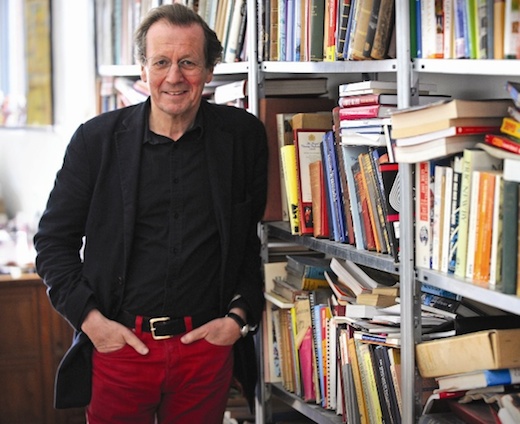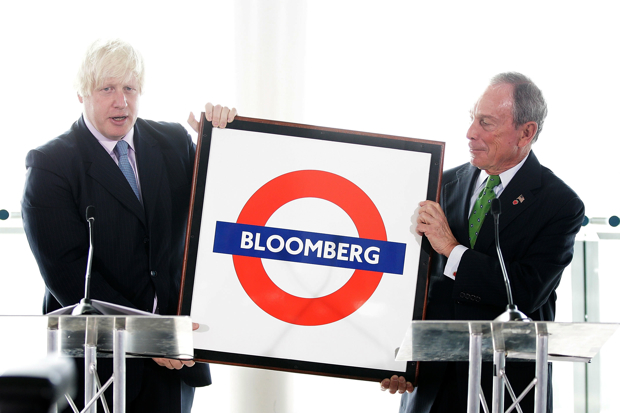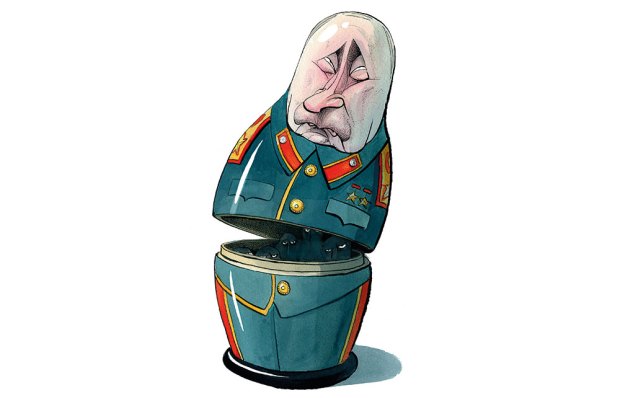As Michael Bloomberg approached the end of his time as Mayor of New York, Americans expected him to run for the White House. He had the money, the profile and the ego to be President. But the problem, as it turned out, was his ambition — he had too much of it to settle for the Oval Office. As he put it: ‘I have my own army, the seventh largest in the world. I have my own state department and I don’t listen to Washington very much.’ His ambition, it turns out, was not to be the next President of the United States. He wants to be Mayor of the World.
Bloomberg is deadly serious. Since stepping down last Christmas he has recruited a hit team of government advisers who intend to travel the world giving advice on how to run cities. It is, in effect, a freelance Bloomberg mayoralty — a roaming consulting service for municipalities everywhere. Bloomberg Associates will fly around the world to instruct mayors on economic growth, solving traffic issues and tackling gangs or gun crime. His clients — the cities — will not have to pay a penny to learn from Bloomberg. He is a multi-billionaire philanthropist, who believes that real power to change things belongs to these dynamic city halls, not ossified national governments.
Now that half the world’s population lives in cities, mayors have become more and more important. The unwieldy government machine can take years to change, but a city hall is a far smaller, more nimble unit. London, for example, shows what an active modern mayor can achieve. The city’s state schools now rank among the best in the land. Taxes have actually fallen. Crime is falling. Last week, the annual taxi fare increases were limited to 0.7 per cent. Visitors to the city can now see the brand-new hop-on hop-off Routemaster buses, simply because Boris Johnson thought it was a shame to see them go. Boris bikes — how many politicians have bikes, buses and possibly airports named after them? — have paved the way for a cycling revolution.
Londoners (there are more of them than Scots and Welsh put together) can argue that Boris has made more of an impact on their lives than David Cameron. And this is with the Mayor of London having fewer powers than most mayors. He is one of many from around the world — Tony Tan in Singapore, Yury Luzhkov of Moscow and Wolfgang Schuster in Stuttgart — who argue that the city is the optimum government unit. Some go even further and believe that empowered mayors are the only hope of restoring faith in politics. In his book If Mayors Ruled the World, the American political theorist Benjamin Barber argues that mayors are the remedy for opaque and disconnected political institutions. Nation states are ‘indisposed to cooperation’ and ‘too inclined by their nature to rivalry’, he says. But cities can do what the states and nations cannot. In other words, we ought not to look to David Cameron and Barack Obama for visions of the future — we should look to Boris and Bloomberg.
David Cameron was once enthusiastic about this idea too. In opposition, he had a plan to put mayors everywhere. But of 11 cities asked in a referendum, only Bristol and Doncaster said yes to elected mayors. The policy was half-baked and those behind it felt Whitehall should stay out of it. Nothing scares the British public more than the thought of those in charge imposing more tiers of government.
Bristol offers a glimpse of what might have been. George Ferguson, a red–trouser-clad 67-year-old architect, was elected as an independent candidate for mayor 16 months ago. Since then his record has been striking. He has banished cyclist-unfriendly bendy buses, revoked Sunday parking charges, signed off on several new primary schools and implemented a 20mph zone in residential areas. Ferguson has flown around the world to promote Bristol, campaigning for the city to be given the title of European Green Capital 2015 (he succeeded). He is not party political, but has his own war cry: ‘If we’re going to save the world, let’s have fun doing it.’

Many global success stories can be traced to strong mayors, rather than strong prime ministers or presidents. New Delhi’s revival is down to Sheila Dikshit, who has rebuilt her city over the past 15 years. She oversaw an all-new metro system that came in on time and on budget, as well as significantly reducing pollution and presiding over the rebuilding of all of the cities’ road networks.
Palermo in Sicily only managed to take down the Mafia after a strong mayor, Leoluca Orlando, rooted out government contracts with companies suspected of being linked to the mob.
Increasingly, mayors now look to each other and borrow ideas: Bill Bratton, who pioneered zero-tolerance policing in New York, was David Cameron’s favourite to run the Metropolitan Police. Bike schemes are popping up from Brazil to Beijing. Milan recently adopted a London-style congestion charge.
As a species, mayors have features in common: they tend to be flamboyant mavericks with no respect for the political hierarchy. Michael Bloomberg was a Democrat, before defecting to the Republicans and then finishing his term as an independent. Boris Johnson was once known as an SDP man, before moving to the Eurosceptic wing of the Tories. The ideological indifference — pragmatism over politics — fits with a trend where voters, worldwide, are becoming less tribal.
Also, cities like to learn from each other. In If Mayors Ruled the World, Barber proposes an international parliament of mayors; 3,000 city leaders uniting together to compare notes. It would be like a United Nations for municipalities — except it might actually work. Mayors would continue to do what they do now, but as with Bloomberg’s grand plan, their pooled knowledge would help to tackle the problems our national governments seem unable to fix.
In the corridors and pubs of Westminster, conversations inevitably turn to everyone’s favourite gossiping game — what will Boris do next? The Mayor is adept at not giving a straight answer, and perhaps this is why. Why waste his time in the drudgery, drift and listlessness of national parliaments when he already has the top job?
Got something to add? Join the discussion and comment below.
Get 10 issues for just $10
Subscribe to The Spectator Australia today for the next 10 magazine issues, plus full online access, for just $10.
You might disagree with half of it, but you’ll enjoy reading all of it. Try your first month for free, then just $2 a week for the remainder of your first year.















Comments
Don't miss out
Join the conversation with other Spectator Australia readers. Subscribe to leave a comment.
SUBSCRIBEAlready a subscriber? Log in